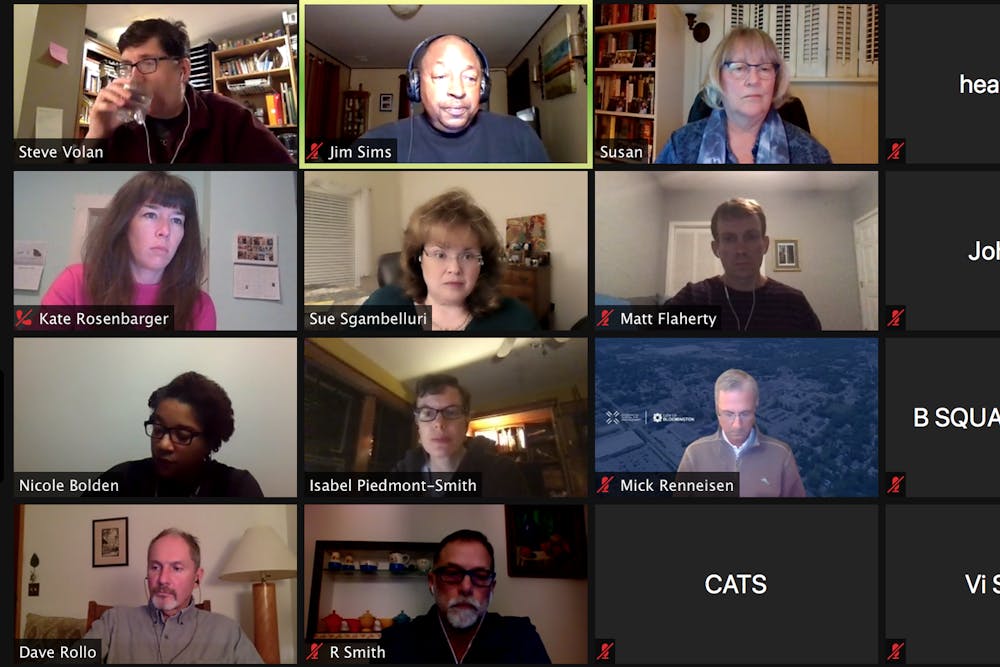After almost three hours of debate between council and community members, the Bloomington City Council voted 6-3 in favor of creating a Community Advisory on Public Safety Commission.
The 11-person commission is meant to examine public safety outside the frame of law enforcement, said council member Isabel Piedmont-Smith, one of the co-sponsors of the legislation. Commissioners would gather data on marginalized residents’ perceptions of public safety, research how other cities handle public safety and make recommendations to the city council and mayor.
Piedmont-Smith said during her presentation that the commission is meant to be a platform for underrepresented communities to voice their public safety concerns directly to the city. Two years after the commission’s first meeting, the city council will review the success of the commission.
Residents can apply for a seat on the commission by completing a paper or online application. The City Council Public Safety Committee will review applications, conduct interviews and make recommendations to the whole council.
Preference will be given to people of marginalized communities or those that advocate for those communities, including Black, Indigenous or other people of color, LGBTQ and nonbinary people, disabled people, people who have experienced or are experiencing homelessness, mental health issues, addiction and people who were incarcerated, Piedmont-Smith said. She said there’s no expectation to fulfill any quota for certain demographics and she recognizes there can be intersectionality between these communities.
Council member Jim Sims questioned how involved marginalized communities were in the creation of the legislation.
Piedmont-Smith said co-sponsors reached out to various agencies such as Middle Way House, the NAACP and the Bloomington Homeless Coalition. She said the commission isn’t meant to have agency representatives, but she conceded that more community members of color should have been involved in writing the legislation.
Piedmont-Smith said some council members had previously proposed the commission be a focus group or a task force, though she said these structures wouldn’t allow for the complexity and time required to fulfill the commission’s goals. In defending the commission structure, she said it was best because it would have the commitment of the city behind it.
Sims, who was one of three council members to vote against the commission’s creation, said some marginalized community members might feel as if they are being “saved.”
“They don’t particularly need saving,” he said. “They want to participate and be involved, which they weren’t at the beginning.”
Community and Family Resources Department director Beverly Calender-Anderson, speaking on behalf of city administration, said the council should prioritize perspectives of marginalized communities even if the commission is approved.
“Every voice of a resident should be important, and it shouldn’t have to fit into a particular structure to be legitimized,” she said.
Council member Sue Sgambelluri, who voted no on the commission, echoed this sentiment.
“I have sought out and will continue to seek out connection systems to be spoken to, I will continue to listen, regardless of what we call this or don’t call this,” she said.
Board of Public Safety member Maqube Reese and IU Black Student Union president Ky Freeman made public comments supporting the ideals of the commission but said the input from marginalized communities was insufficient.
“With the creation of something, structurally if these voices — very much so diverse voices — were not centered in its creation, it didn’t radically do anything to shift the conversation of the power and the authority,” Freeman said.
Many members of the public voiced support for the commission’s creation, such as Vauhxx Booker, who is on the Monroe County Human Rights Commission.
“I have to ask as a member of a marginalized community, what is the downside of creating a commission? What do we feel for? What is there so much consternation?” he said. “It’s not the burden of the brutalized or the oppressed to correct all the social ills. So yes, I feel like my representatives should be advocating for marginalized communities.”
Community member Lisa Podulka made a public comment calling the commission “the bare minimum” the city could do to uplift the voices of the marginalized.
Council members pointed out the existence of city entities with overlapping goals, such as the Task Force on the Future of Policing, the Commission on the Status of Black Males and the Commission on Hispanic and Latino Affairs.
Council member Susan Sandberg joined Sims and Sgambelluri in voting against the commission “with great regret and sadness,” saying she was concerned about the commission’s effectiveness in addressing issues it might not have jurisdiction over. Multiple public commenters expressed frustration over poor interactions with EMTs and IU Health, which the city doesn’t have the authority to enact policy about, though it does have fiscal oversight over the Bloomington Police Department.
The council also voted unanimously Wednesday night to allocate almost $250,000 of COVID-19 relief funding to 25 local social service agencies and to establish an Engineering Department.
Deputy Mayor Mick Renneisen and others presented an update about the hospital site redevelopment project that has been in the works for about six years. Renneisen urged residents to check out the proposed project online and give feedback.




